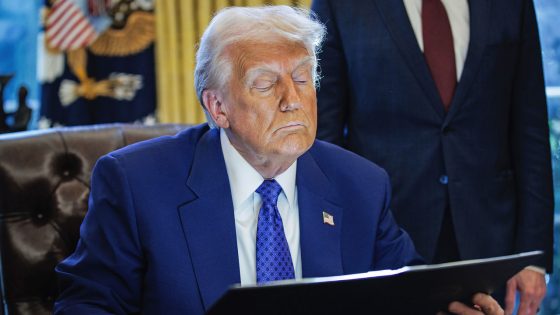On February 19, 2025, former President Donald Trump proposed a new trade policy that aims to implement reciprocal tariffs. These tariffs would match the duties imposed on American exports by other countries and include additional charges to counter perceived unfair practices. This shift from a stable multilateral trade system could lead to unpredictable outcomes in global commerce.
- Ditching global trade principles risks instability.
- Trump proposes reciprocal tariffs on exports.
- Unfair policies may incur additional charges.
- Multilateral trade system has flaws but benefits.
- Arbitrary judgments could replace established rules.
The proposal for reciprocal tariffs marks a significant departure from decades of established trade norms that have generally favored multilateral agreements. Trump’s administration argues that this approach will protect American industries by ensuring fairness in international trade practices. However, critics warn that such measures could lead to increased tensions between nations and potential retaliatory actions.
Key details of the proposal include:
- Matching foreign tariffs on U.S. goods.
- Additional charges for policies deemed unfair by U.S. authorities.
- A potential increase in costs for consumers due to higher import prices.
This strategy raises questions about its long-term viability and effects on global markets, which have thrived under existing frameworks despite their flaws. Economists suggest that moving away from cooperative agreements may hinder economic growth and stability worldwide.
The implications of Trump’s tariff plan extend beyond immediate economic impacts; they may also reshape diplomatic relations as countries react to perceived threats against their own economies. As nations reassess their positions in light of these changes, the future landscape of international trade remains uncertain.
The introduction of reciprocal tariffs by Donald Trump signifies a pivotal moment in global trade policy, potentially leading to chaos within established systems designed to promote cooperation and mutual benefit among nations.
































